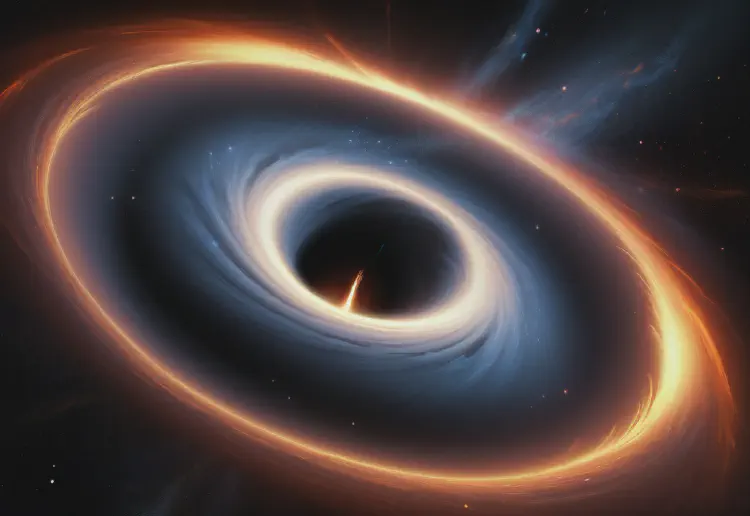The Mysteries of Black Holes: Nature's Cosmic Vacuum Cleaners
Dive into the enigmatic world of black holes and uncover their role in the universe.
- Elara Starweaver
- 3 min read

Black holes are among the most fascinating and enigmatic objects in the universe. Often described as nature’s cosmic vacuum cleaners, they possess gravitational forces so strong that nothing, not even light, can escape their grasp. In this article, we will explore the nature of black holes, their formation, and their significance in the cosmos.
What is a Black Hole?
A black hole is a region in space where the gravitational pull is so intense that nothing can escape from it. The boundary surrounding a black hole is known as the event horizon, beyond which no information or matter can return. Black holes are formed when massive stars exhaust their nuclear fuel and collapse under their own gravity, leading to a singularity—a point of infinite density at the center.
Types of Black Holes
There are three main types of black holes: stellar, supermassive, and intermediate. Stellar black holes are formed from the remnants of massive stars and typically have masses ranging from a few to several tens of solar masses. Supermassive black holes, found at the centers of galaxies, can have masses equivalent to millions or even billions of suns. Intermediate black holes are less understood and are thought to exist between the two categories, possibly formed through the merging of smaller black holes.
The Formation of Black Holes
The formation of black holes begins with the life cycle of a massive star. When a star runs out of nuclear fuel, it can no longer support itself against gravitational collapse. The outer layers of the star may be expelled in a supernova explosion, while the core collapses into a black hole. This process not only creates a black hole but can also lead to the formation of neutron stars or pulsars, depending on the mass of the original star.
The Role of Black Holes in Galaxies
Supermassive black holes play a crucial role in the evolution of galaxies. They are believed to influence the formation and dynamics of galaxies, affecting star formation rates and the distribution of matter. The gravitational pull of a supermassive black hole can also lead to the creation of accretion disks, where surrounding gas and dust spiral inward, emitting intense radiation as they are heated to extreme temperatures.
Observing Black Holes
While black holes themselves cannot be observed directly, their presence can be inferred through their interactions with nearby matter. Astronomers use various methods to detect black holes, such as observing the motion of stars around an invisible mass or detecting X-rays emitted by material falling into a black hole. The Event Horizon Telescope made headlines in 2019 by capturing the first-ever image of a black hole’s event horizon in the galaxy M87, providing a groundbreaking glimpse into these mysterious objects.
Theoretical Implications and Research
Black holes challenge our understanding of physics, particularly in the realms of general relativity and quantum mechanics. The study of black holes raises profound questions about the nature of space, time, and the fundamental laws of the universe. Researchers continue to explore concepts such as Hawking radiation, which suggests that black holes can emit radiation and potentially evaporate over time, leading to intriguing implications for the fate of the universe.
Conclusion: The Enigma of Black Holes
Black holes remain one of the most captivating subjects in astrophysics, representing the limits of our understanding of the universe. As we continue to study these cosmic phenomena, we uncover new insights into the nature of gravity, the fabric of spacetime, and the evolution of galaxies. The mysteries of black holes remind us of the vastness of the cosmos and the endless possibilities for discovery.
Join us at Astral Insights as we delve deeper into the wonders of the universe and explore the enigmatic nature of black holes!
- Tags:
- Black Hole
- Gravity
- Universe